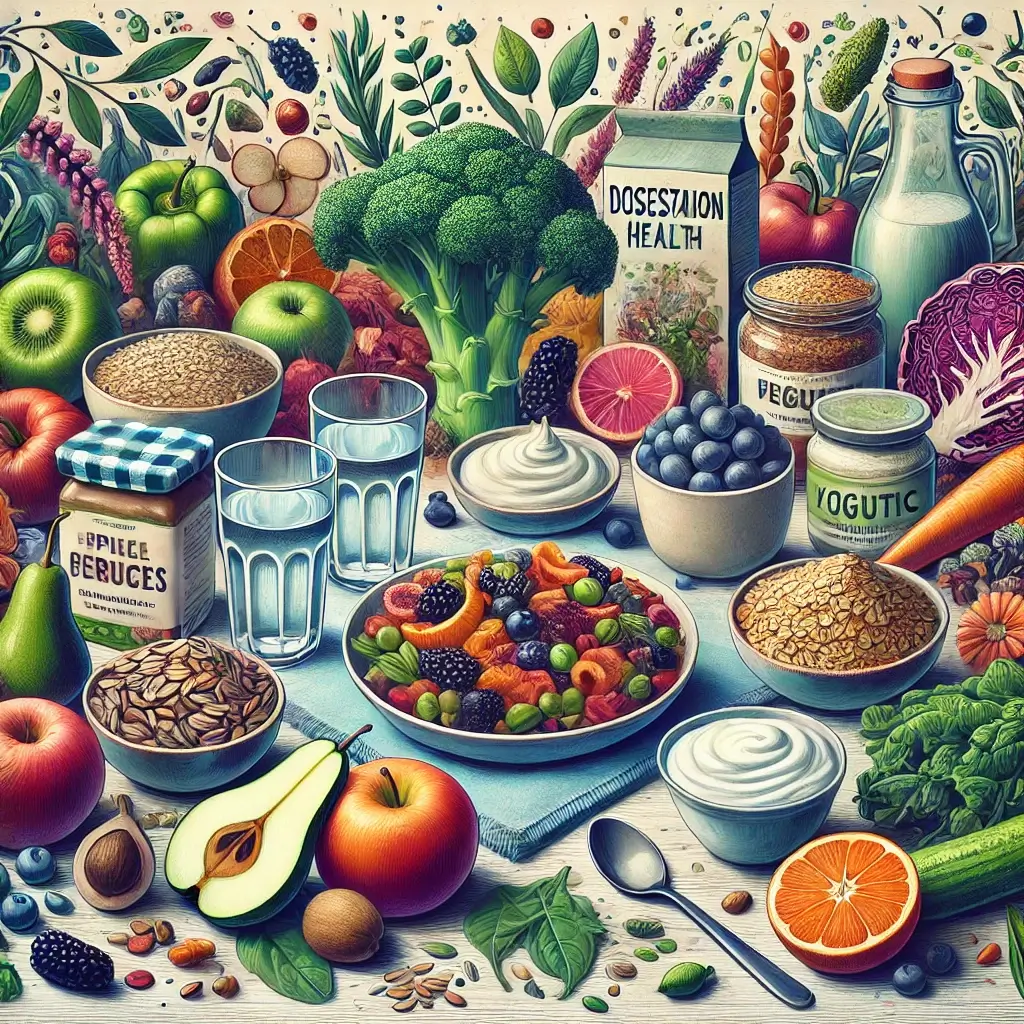Understanding Constipation and Its Impact
Constipation is a common but often overlooked condition affecting millions worldwide. Characterized by infrequent bowel movements (fewer than three per week), difficulty passing stools, and a sensation of incomplete evacuation, it can significantly disrupt daily routines and overall well-being. While constipation can result from various medical conditions (e.g., irritable bowel syndrome or hypothyroidism), certain medications, or lifestyle habits, dietary choices are one of the most modifiable contributors.
The Importance of Addressing Constipation
The importance of addressing constipation extends beyond comfort. Chronic constipation can lead to complications like hemorrhoids, anal fissures, or even fecal impaction. The good news is that natural remedies, particularly through diet, can provide effective relief. This article delves into evidence-backed dietary strategies, focusing on hydration, fiber, and probiotics as key players in promoting digestive health and alleviating constipation.
The Science Behind Constipation and Dietary Solutions
Constipation often stems from inadequate dietary fiber and hydration, both of which are crucial for maintaining stool consistency and bowel regularity. Research provides compelling evidence for their role in alleviating this condition:
Understanding Fiber’s Role in Regularity
Fiber is a dietary superstar when it comes to preventing and managing constipation. A 2019 systematic review published in Alimentary Pharmacology & Therapeutics found that increasing fiber intake significantly improved stool consistency and bowel movement frequency. Soluble fiber (found in foods like oats, apples, and citrus fruits) absorbs water and softens stools, while insoluble fiber (found in whole grains, vegetables, and legumes) adds bulk, facilitating easier passage through the digestive tract.
The Critical Role of Hydration
Dehydration is a common but preventable cause of constipation. A 2016 study in the World Journal of Gastroenterology revealed that increasing water intake improved symptoms in patients with chronic constipation. Water helps maintain optimal stool consistency, preventing it from becoming dry and difficult to pass. Aim for at least 8–10 glasses of water daily, and consider hydrating alternatives like herbal teas or fruit-infused water.
Probiotics and Their Impact on Gut Health
Probiotics, or beneficial live bacteria found in fermented foods, play a vital role in maintaining gut health. A 2020 study in Nutrients demonstrated that consuming probiotics improved stool consistency and bowel movement frequency. Foods like yogurt (with live cultures), kefir, and kimchi are excellent sources of probiotics and can help restore a healthy balance of gut bacteria.
Essential Foods for Constipation Relief
Incorporating the right foods into your diet is a proactive step toward relieving constipation. Below is a guide to foods that can aid in digestive health:
Fiber-Rich Foods Guide
Fruits: Apples (with skin), pears, prunes, and berries (e.g., raspberries and blackberries).
Vegetables: Spinach, kale, Brussels sprouts, broccoli, and artichokes.
Whole Grains: Oats, quinoa, brown rice, and whole-wheat bread.
Legumes: Black beans, lentils, and chickpeas.
Nuts and Seeds: Almonds, chia seeds (soaked), and flaxseeds (ground).
Hydration Solutions
Water remains the cornerstone of hydration. Supplement your intake with hydrating foods like cucumbers, watermelon, and oranges. Herbal teas and clear broths can also contribute to your daily fluid goals.
Probiotic Food Sources
Yogurt (with active cultures), kefir, sauerkraut, and kimchi are all excellent choices for enhancing gut health.
Implementing Dietary Changes Successfully
Adopting these dietary strategies doesn’t need to be overwhelming. Start by gradually increasing your fiber intake to avoid bloating or discomfort. Pair high-fiber foods with adequate water to maximize their benefits. For example:
Practical Daily Tips
Add a handful of berries to your morning oatmeal.
Snack on raw vegetables with hummus.
Incorporate fermented foods like yogurt into your lunch or dinner.
Consistency is key. Regularly consuming these foods will support long-term digestive health and prevent future episodes of constipation.
Conclusion: Taking Control of Your Digestive Health
Constipation is a manageable condition that often requires simple lifestyle changes, especially dietary adjustments. By prioritizing fiber-rich foods, staying hydrated, and including probiotics in your meals, you can achieve regularity and enhance your overall well-being. If symptoms persist despite dietary changes, consult a healthcare provider to rule out underlying medical conditions.
References
Chey, W. D., & Bharucha, A. E. (2019). Constipation: Evaluation and Treatment. Alimentary Pharmacology & Therapeutics, 50.
Yang, X., et al. (2016). Role of water intake in chronic functional constipation: A comprehensive review. World Journal of Gastroenterology, 22(21), 4878-4887.
Liu, Z., et al. (2020). Prebiotics and Probiotics: Impact on Constipation. Nutrients, 12(8), 2266.
